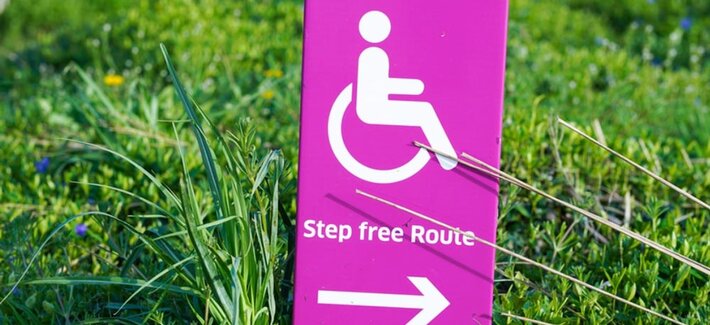Everybody Counts: Putting The Washington Group Questions Into Action

“The census direct question, nobody is responding [to], but using a softer type of question you are getting more numbers. It means that the way to ask the questions is important. We are not using the word disability but functional limitation and they are responding to it.” Sightsavers Programme Manager, India
The way we ask the questions is important. The quote above sums up the incredible potential of the Washington Group Questions to change how we collect data around disability and – more importantly – what that data tells us and how it could influence inclusive decision-making.
Globally, many of the ways data on disability are collected (perhaps the majority) are stigmatising and therefore inaccurate, as they result in people failing to disclose the presence of an impairment. This means that governments and policymakers don’t know how many people in their countries consider themselves to have difficulty in functioning, where these people are living, and what action is necessary to ensure they’re not excluded from participating in society. With the 2030 Agenda calling for development policy to ‘leave no one behind’, the need to address this knowledge gap is more vital than ever.
Everybody Counts
In 2014, in response to this global lack of appropriate data (in particular at the level of access to services) Sightsavers launched Everybody Counts, a project to test disaggregating data by disability at the project or service delivery level. We have now undertaken work using the Washington Group Short Set of Questions (WGSS) in four different contexts, with disability defined as per the Washington Group recommended cut-off: “at least one domain is a lot of difficulty or unable to do it at all”.
In India we integrated the WGSS and the India census question on disability (“Are you disabled?”) into an Urban Eye Health programme conducted at vision centres, outreach camps and an NGO eye hospital. This pilot collected data on 24,518 patients over a 16-month period.
In Tanzania we used the WGSS in a neglected tropical disease elimination programme – specifically, we integrated data collected in trachoma trichiasis (TT) camps. In this pilot we collected data on 1,439 patients who attended camps over a four-month period.
In Cameroon we piloted integrating the WGSS into a population-based survey called a RAAB (Rapid Assessment of Avoidable Blindness). Data was collected on 3,567 patients over a three-month period.
In Malawi we integrated the WGSS into data collection systems at a TT camp in a community health project. In this pilot, we also used an equity measurement tool, which allowed us to disaggregate data by socio-economic status. We collected data on 545 patients over a six-day period.
The results from these projects were analysed to assess if disability data collection was feasible, to identify the most appropriate way to collect data, and to make our programmes more inclusive.
One of the main things we found was that using the WGSS made an enormous difference when it came to gauging the number of people living with disability, particularly in India, where the vast majority – 99.4% – of patients said they were not disabled when asked the census question. However, when the Washington Group Questions were used, more than 60% reported “at least some difficulty” in one domain. The implications of this at the national and international level are clear – project approaches which do not consider measures to ensure access by people with disabilities, will not reach the populations they intend, but only a proportion of those populations. And programmes which do not consider collection of data disaggregated by disability in some form, will not understand the measures they need to undertake.
What next?
Everybody Counts marks the first time as an organisation we’ve had good quality and comparative data on disability from our eye health and NTD programmes. The WGSS has helped us identify who is accessing services and where potential barriers exist, laid the groundwork for further investigation, and allowed us and our partners to adapt our approach to become more gender and disability inclusive. We’ve also been able to demonstrate that it’s possible to collect data disaggregated by disability at project level with the right planning.
We have great plans for continuing to use the WGSS in our work. We’ll be incorporating the questions in some form into more of our health programmes –assessing when it’s relevant (and when it’s not) to collect disaggregated data, and looking at how the WGSS can be used to gauge success in efforts to make health programmes inclusive of all people with disabilities. We’ll continue to include the WGSS in population-based surveys to assess the prevalence of eye health issues in local areas, incorporating the WGSS into population-based survey methodologies used to assess prevalence of eye health issues in specific areas. And we’ll keep evaluating how the WGSS can be used in a complementary way with other tools like the equity measurement tool. All of this will allow us to make evidence-based programme decisions on priority areas to address, so we can improve access by marginalised population groups.
Given the general lack of published evidence available, we believe the findings from Everybody Counts can contribute to progressing better data collection on disability in development programmes, and help the global community work towards achieving the 2030 Agenda. By asking the right questions, we’re getting closer to providing the right answers. So we will continue to share our learning on what’s gone wrong, as well as what’s going right.
This is the first of two blogposts from the team at Sightsavers – the next post will look at what we learned in using the Washington Group Questions in our work. To read more, visit www.sightsavers.org/everybodycounts
